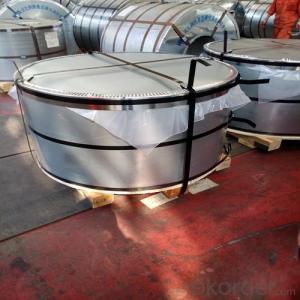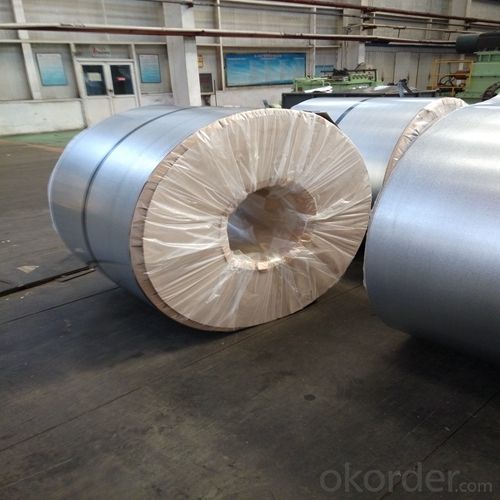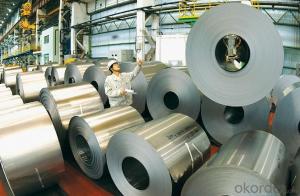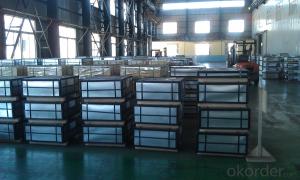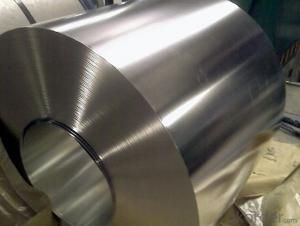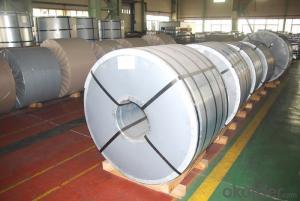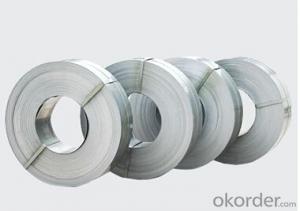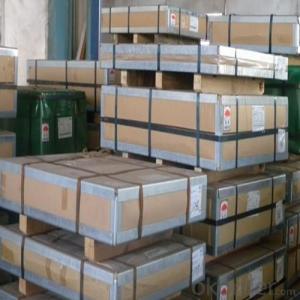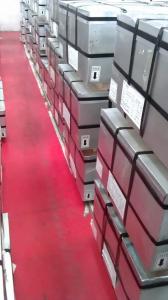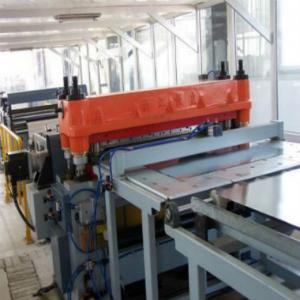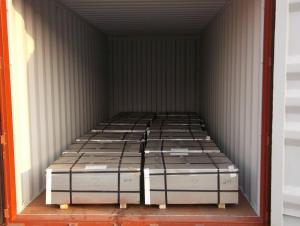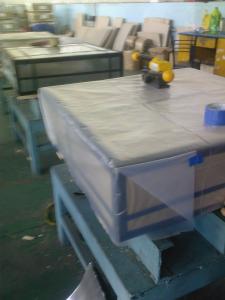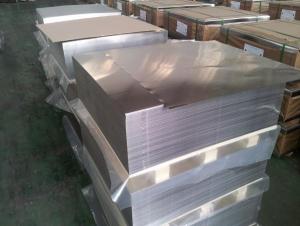Tinplate and TFS for Chemical or Industrial Useage
- Loading Port:
- Shanghai
- Payment Terms:
- TT OR LC
- Min Order Qty:
- 25 m.t.
- Supply Capability:
- 30000 m.t./month
OKorder Service Pledge
OKorder Financial Service
You Might Also Like
Specification
1.Structure of Tinplate and TFS for Chemical or Industrial Useage Description
Electrolytic Tinplate,is one thin steel sheet with a coating of tin applied by electrolytic deposition. Tinplate made by this process is essentially a sandwich in which the central core is strip steel. This core is cleaned in a pickling solution and then fed through tanks containing electrolyte, where tin is deposited on both sides. As the strip passes between high-frequency electric induction coils, it is heated so that the tin coating melts and flows to form a lustrous coat.
Also known as chromed steel, tin-free steel (TFS) is obtained by coating the metal base (low-carbon steel) with an ultra-thin layer of metallic chrome and then with a chromium oxide layer.
2.Main Features of the Tinplate and TFS for Chemical or Industrial Useage
Appearance – Tinplate is characterized by its beautiful metallic luster. Products with various kinds of surface roughness are produced by selecting the surface finish of the substrate steel sheet.
Paintability and printability – Tinplates have excellent paintability and printability. Printing is beautifully finished using various lacquers and inks.
Formability and strength – Tinplates have got very good formability and strength. By selecting a proper temper grade, appropriate formability is obtained for different applications as well as the required strength after forming.
Corrosion resistance – Tinplate has got good corrosion resistance. By selecting a proper coating weight, appropriate corrosion resistance is obtained against container contents. Coated items should meet 24 hour 5 % salt spray requirement.
3.Tinplate and TFS for Chemical or Industrial Useage Images
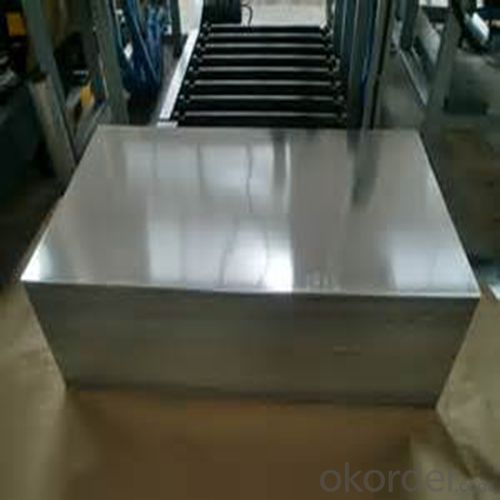
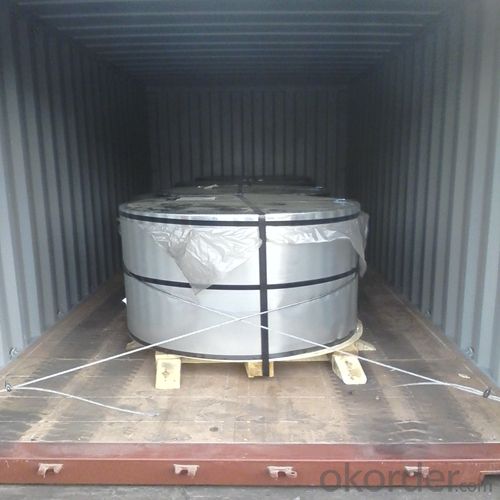
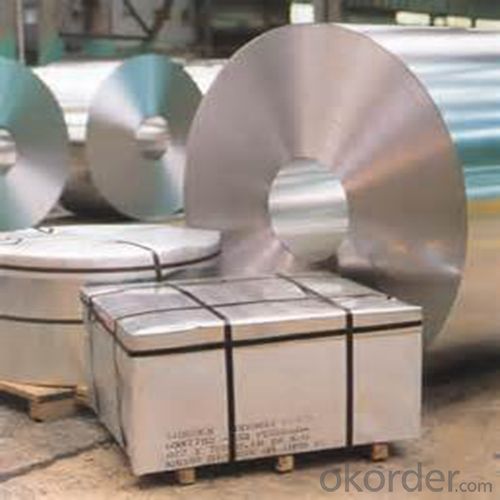
4.Tinplate and TFS for Chemical or Industrial Useage Specification
Specification of :
Standard: ISO 11949 -1995, GB/T2520-2000,JIS G3303,ASTM A623, BS EN 10202
Material: MR,SPCC
Thickness:0.15mm - 0.50mm
Width: 600mm -1150mm
Temper: T1-T5
Annealing: BA & CA
Coil Inner Diameter: 508mm
Weight: 6-10 tons/coil 1~1.7 tons/sheets bundle
Passivation:311
Oil: DOS
Surface: Finish,bright,stone,matte,silver
5.FAQ of Tinplate and TFS for Chemical or Industrial Useage
- How are the tinplates specified?
The tinplates are specified as per the steel base, extent of tempering, the coating weight, annealing method and the surface finish.
- How many types there are for base steels?
The base steels are of three types: Type MR, L, D
- Q: How does tinplate handle exposure to UV radiation?
- Tinplate is not resistant to UV radiation and can undergo degradation or discoloration when exposed to prolonged sunlight.
- Q: How does tinplate contribute to the reduction of food waste?
- Tinplate contributes to the reduction of food waste by providing a durable and protective packaging solution for various food products. Its corrosion-resistant properties and airtight seal help to maintain the freshness and extend the shelf life of food items. This ensures that less food goes to waste due to spoilage or contamination, ultimately aiding in the reduction of food waste.
- Q: What are the common challenges faced in the production of tinplate?
- Some common challenges faced in the production of tinplate include ensuring consistent tin coating thickness, preventing surface defects such as scratches and dents, maintaining proper adhesion between tin and steel, controlling the tin plating process parameters such as temperature and time, and managing the environmental impact of tinplate production, particularly in terms of waste disposal and chemical usage.
- Q: Can tinplate packaging be used for pet food products?
- Yes, tinplate packaging can be used for pet food products.
- Q: What are the main regulations governing tinplate recycling?
- The main regulations governing tinplate recycling vary by country and region. However, some common regulations include waste management laws, recycling targets, and regulations regarding the collection, sorting, and processing of tinplate materials. These regulations aim to promote the proper disposal and recycling of tinplate, ensuring environmental sustainability and resource conservation.
- Q: What are the main challenges in tinplate inventory management?
- The main challenges in tinplate inventory management include managing fluctuating demand, ensuring accurate forecasting, optimizing storage space, minimizing waste and obsolescence, and maintaining efficient logistics and supply chain operations.
- Q: How does tinplate perform in terms of printability?
- Tinplate performs exceptionally well in terms of printability. Its smooth surface allows for high-quality printing with vibrant colors and fine details, making it a popular choice for packaging and labeling applications.
- Q: What are the main trends in tinplate packaging design?
- Some of the main trends in tinplate packaging design include minimalist designs, eco-friendly packaging, retro/vintage-inspired designs, and innovative shapes and structures. Additionally, there is a growing emphasis on storytelling and creating a unique brand experience through packaging design.
- Q: What are the main export markets for tinplate?
- The main export markets for tinplate include countries such as China, Japan, South Korea, United States, and Germany.
- Q: Can tinplate be used for gift packaging?
- Yes, tinplate can be used for gift packaging. It is a versatile material that offers durability and can be easily shaped into various sizes and designs. Tinplate also provides a visually appealing and premium look, making it an excellent choice for gift packaging.
Send your message to us
Tinplate and TFS for Chemical or Industrial Useage
- Loading Port:
- Shanghai
- Payment Terms:
- TT OR LC
- Min Order Qty:
- 25 m.t.
- Supply Capability:
- 30000 m.t./month
OKorder Service Pledge
OKorder Financial Service
Similar products
Hot products
Hot Searches
Related keywords
